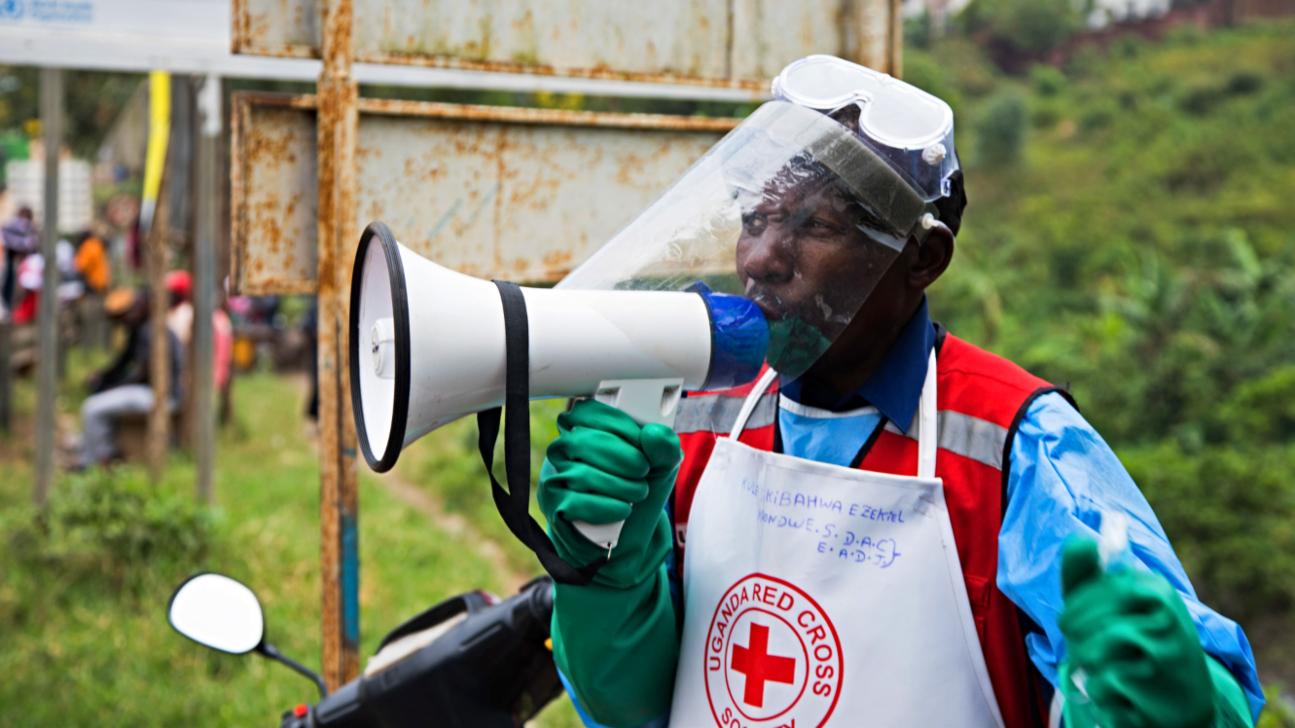The COVID-19 crisis has been presented as an opportunity for innovating digital solutions to African healthcare challenges. Seeking to reach beyond geographic, gendered and literacy barriers, advances in legal tech are addressing the same issues as epidemic responses. Naima Kane explores how legal tech can serve as a blueprint for entrepreneurs seeking to maximise audience reach during the current health crisis, by placing inclusivity at the core of the business model.
As the COVID-19 crisis gains momentum and continues to transform the livelihoods of so many across the African continent, it has also allowed for in-depth reflection on the challenges of health infrastructure, political will and the inequalities that shape the delivery of social services.
Discussions around how COVID-19 has played out in Africa have ranged from focusing on leadership and repressive governmental responses to policy concerns and the dangerous risks of enforcing social distancing measures observed in Western countries. Much of these measures would also require addressing many of the general challenges faced by the urban poor such as economic struggles within the informal sector, energy access, food security and water, sanitation and hygiene (WASH). African investors have emphasised the opportunities the crisis presents for innovating solutions around existing obstacles within current healthcare delivery systems across the continent, using information and communications technologies.
As ordinary citizens, civil society, media and businesses continue to find creative ways to shift community behaviour (such as mask manufacturing and distribution) and increase public awareness in the face of political constraints, it is important to understand the pandemic and public health more broadly as not being siloed from other services and sectors needed to protect citizens.
Poverty experts such as Andries Du Toit have argued that the eradication of disease does not rely exclusively on scientific and medical fields, but also on developing ‘public health movements’ in which disease prevention is linked to broader calls for social mobilisation, justice and community-led campaigning as witnessed with activist networks during the AIDS epidemic in South Africa. More importantly, broadening the conversation to include initiatives in Africa which do not focus solely on health (such as e-commerce, edtech and cleantech) can offer insight into what models and approaches have been successful for increasing collective access and knowledge sharing, and tailoring low-cost solutions to local realities.
Legal tech can promote access to justice
One of the fields that has made significant strides in increasing access to justice and legal services across the continent has been the world of legal tech. The sector has addressed this need in emerging markets by proposing innovative, digitised and paperless solutions to increase access to justice. From business ventures to simple legal counsel for land right issues, legal services are a part of a growing niche in which ‘justice entrepreneurs’ and ‘legal empowerment actors’ have found ways to deliver their services to under-served populations and strengthen their capacity to solve justice-related issues on the continent in a user-friendly way.
Hubs such as the African Legal & Tech Network and Legal Tech Africa have contributed to showcasing the innovation of African entrepreneurs on the international stage, through hackathons and conferences all over the continent. For example, in February 2018, South Africa for the first time hosted the Global Legal Hackathon, convening technology companies, governments and practitioners from across the globe. Many African entrepreneurs and innovators have also been recognised by the Justice Accelerator HiiL Program, which supports global initiatives to modernise justice innovation models. Some of the leading and impactful projects gaining traction include Justice Bot in Uganda, which allows a user to be connected with a legal expert via the Messenger chat on Facebook, Lawpadi in Nigeria which describes itself as a ‘Google’ for legal issues, JusDraft which provides businesses automation of free legal documents, and Road Rules, an app that educates drivers about Zimbabwean traffic rules, which has reached 50,000 people.
Merging digital and mobile solutions with the law allows for a greater expansion of legal advice, which can be given beyond typical geographical boundaries, reduce costs, accelerate administrative procedures and provide people with more accessible information as well as support tailored to their realities.
Reshaping the healthcare landscape
Despite Africa’s mobile and telecommunications sector boom, with an estimated half a billion unique mobile subscribers in the sub-Saharan region by 2020, technologically-centered initiatives such as legal tech or telemedicine must take into account the broad set of socio-economic, geographical, gendered and literacy barriers that prevent it from being a digitally inclusive solution. As the COVID-19 crisis has exposed, health and poverty are deeply intertwined. The impacts of pandemics magnify wealth inequalities while exacerbating poverty which means any digital pandemic response or mitigation strategy must also take these into account. Founder of the Kenyan Ilahara Health company, Emilian Popa, has brought attention to the challenges of implementing telemedicine in a sustainable way:
‘There has been some adoption of telemedicine activities across, for example in Kenya, Nigeria and Uganda, but these efforts have largely served patients at the upper end of the social spectrum, concentrated among those who can afford to pay for consultations.’
These barriers, however, have been a source of inspiration, pushing legal tech creators to innovate even more, and could serve as a helpful blueprint for entrepreneurs trying to maximise audience reach during the COVID crisis. The success of many legal tech companies on the continent has been due to the emphasis placed on inclusivity and access by placing local disparities at the core of business models.
Advice and information-sharing on COVID-19 on digital platforms is already happening with WhatsApp Chat-bots such as the ‘Abdou chatbot’, created by Albad Mbengue in Senegal. However, as users have pointed out, the chatbot is currently only offered in French while Wolof is the most widely spoken language in the country. In contrast, many legal tech initiatives have successfully incorporated into their platforms’ interface information translated into national languages, as well as regional dialects.
Startups such as Sauti East Africa and Uganda-based Barefoot Law, notably, have developed highly tailored business models, simplified SMS and interactive voice platforms, while also launching community-led awareness initiatives to educate vulnerable populations on their legal rights and increase digital literacy in parallel. They highlight that digital solutions and initiatives in the fight against COVID-19 must also be coupled with local leadership and community engagement to ensure their sustainability. In other words, their effectiveness depends on how well they can be integrated into existing local public health responses that have shown to be successful in the past such as, for example in Uganda, the Village Health Teams or the ‘Ryemo Gemo’ ritual.
Another South African legal tech company, Creative Contracts has even transformed legally binding, written contracts into visual comic strips which outline the responsibilities of the involved parties, originally implemented to help migrant farmers and fruit pickers enter agreements without prior legal knowledge (also see Lawyers4Farmers Uganda). The Viamo enterprise based in Rwanda has even partnered with the Legal Aid Forum (LAF) in Rwanda to offer a ‘3-2-1 service’, in which subscribers can access legal information, advice and personal consultations using a legal aid hotline via mobile by dialling toll-free short codes such as 3-2-1. Simplifying terminology, addressing linguistic barriers and using graphics to illustrate how a particular issue plays out in one’s community are all effective strategies which have shown to benefit users’ capabilities at a relatively low cost.
If digital health initiatives focus on coordinating the interaction between these overlapping solutions, challenges and local mechanisms, as so many legal tech companies have, the COVID-19 crisis may offer an opportunity to positively and sustainably reshape Africa’s healthcare landscape.
Photo: Saving for healthcare on a mobile phone. Credit ITU Pictures licensed under creative commons (CC BY 2.0).






Chère naima, ton article le dit si bien , on ne peut plus se passer de la technologie numérique, la nécessité de coupler éducation à la santé et l apport de la technologie innovante peuvent aider à l information et à la prise en charge optimale des populations considérées comme faible. Merci pour ta contribution